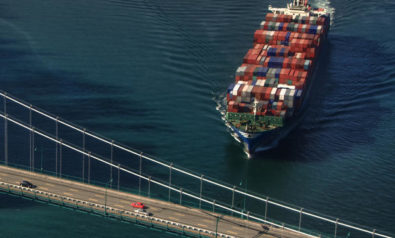The British Empire left some toxic legacies. One of them is the Arab-Israeli standoff over Palestine and another is the India-Pakistan dispute over Kashmir. India and Pakistan are twins that had a bloody birth. Cyril Radcliffe, who drew the lines dividing British India into two independent entities of India and Pakistan, had not even visited the country before he arrived to divide it.
Independence was accompanied by riots and the biggest migration in human history. At root lay two contrasting ideologies. India saw itself as a secular, multicultural country, and Pakistan as a country founded on fallacious religious ideology. Pakistan on the other hand saw India as a Hindu-dominated country, and itself as a state for Muslims in the subcontinent.
When the King of Kashmir signed the instrument of accession to India, Pakistan felt robbed of a Muslim majority province and launched its first attack on India soon thereafter. The two countries were involved in four wars in 1947, 1965, 1971, and 1999. The last war was a result of Pakistani invasion that occurred after both parties had carried out nuclear tests.
Ever since its inception, Pakistan has feared its larger neighbor. This fear led Pakistan to embrace the US and focus inordinately on developing a first rate army. A disproportionately strong army in turn took over the Pakistani state. For most of its existence, Pakistan has been controlled by military dictators. Its democracy has shallow roots, weak institutions, and massive problems with corruption.
Pakistani fear of India got further amplified after the 1971 war that led to the creation of a new country named Bangladesh. Pakistan had hitherto comprised of West Pakistan and East Pakistan, separated by India in the middle. After 1971, East Pakistan became Bangladesh and this traumatized the Pakistani leadership. General Zia-ul-Haq, the military dictator of Pakistan in the 1980s, decided that, since India would always have strategic advantage of size and numbers, Pakistan’s best alternative was to “bleed India through a thousand cuts.” He launched Operation Tupac and diverted both Saudi and American resources sent to Pakistan for Afghan mujahideen, to insurgents fighting India. The Pakistani strategy of promoting terror inside Indian borders continues to this day. Most Indians are convinced that Pakistan is a state that sponsors terror and that Osama bin Laden was being protected by the Pakistani military leadership. Many Pakistanis, on the other hand, are convinced that India plans to dismember their fragile state.
Kashmir continues to bedevil relations, as it is central to the identity of both nations. Pakistan defines itself as a Muslim state and believes Kashmir belongs to it. India defines itself as a multicultural democracy and sees Muslim Kashmir as a part of its rich mosaic. The dispute over Kashmir is existential and impedes any normalization of relations.
Why are India-Pakistan relations relevant?
Relations between India and Pakistan are relevant for three reasons. First, both countries are nuclear powers and so the consequences of poor relations between India and Pakistan could be dire. Second, both countries have huge economic synergies. Partition disrupted economic ties going back millennia. If both countries could have better relations, trade could grow exponentially and there would be a significant uptick in economic growth. Third, the terror that Pakistan supported to gain strategic depth has come back to haunt it. Earlier, terrorism happened elsewhere as in Afghanistan, in India or even in the US, in the spectacular attacks of 9/11. Now these attacks are occurring in Islamabad, Karachi, Lahore, and elsewhere, and tearing at the fabric of Pakistani society. Better relations between India and Pakistan would increase peace and security not only in South Asia, but also in the rest of the world.
For more than 10 years, Fair Observer has been free, fair and independent. No billionaire owns us, no advertisers control us. We are a reader-supported nonprofit. Unlike many other publications, we keep our content free for readers regardless of where they live or whether they can afford to pay. We have no paywalls and no ads.
In the post-truth era of fake news, echo chambers and filter bubbles, we publish a plurality of perspectives from around the world. Anyone can publish with us, but everyone goes through a rigorous editorial process. So, you get fact-checked, well-reasoned content instead of noise.
We publish 2,500+ voices from 90+ countries. We also conduct education and training programs on subjects ranging from digital media and journalism to writing and critical thinking. This doesn’t come cheap. Servers, editors, trainers and web developers cost money.
Please consider supporting us on a regular basis as a recurring donor or a sustaining member.
Support Fair Observer
We rely on your support for our independence, diversity and quality.
Will you support FO’s journalism?
We rely on your support for our independence, diversity and quality.






